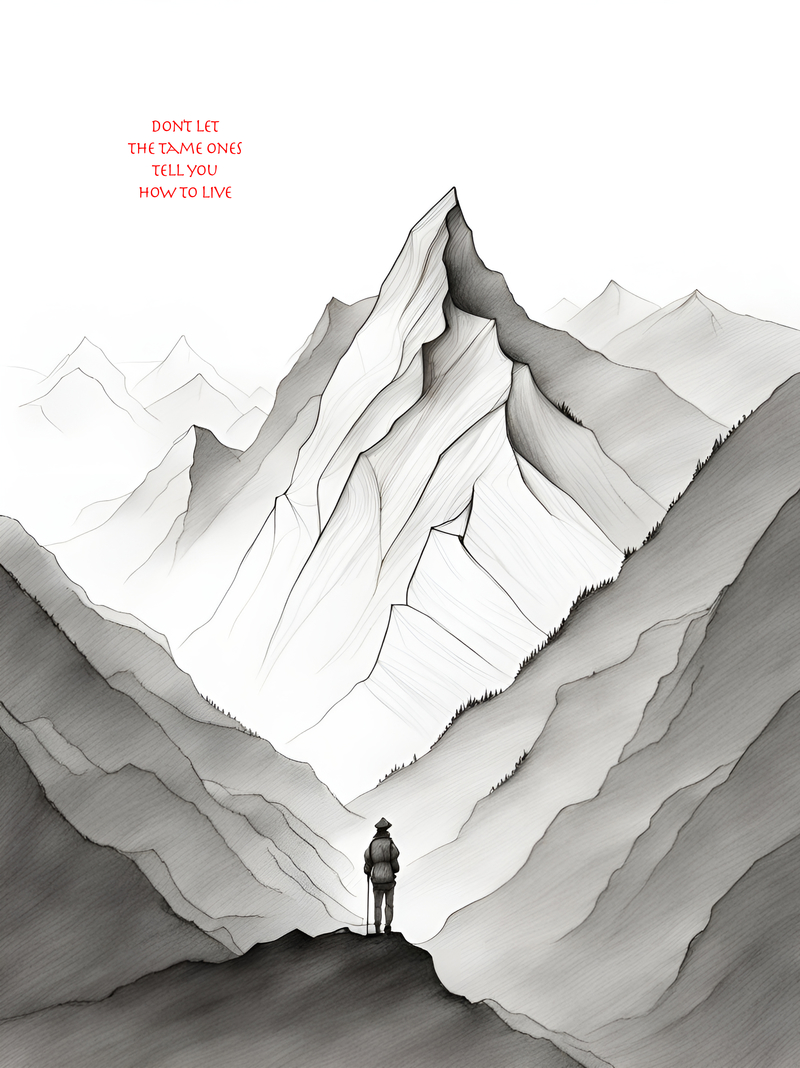“Micromanaging erodes people’s confidence, making them overly dependent on their leaders. Well-meaning leaders inadvertently sabotage their teams by rushing to the rescue and offering too much help. A leader needs to balance assistance with wu wei, backing off long enough to let people learn from their mistakes and develop competence.”
Diane Dreher
Beyond the Quote (194/365)
In the earliest stages of a child’s development it is the responsibility of the parents to provide the most ideal nurturing environments and circumstances. Children are, essentially, completely dependent on what their parents provide. As they grow, however, so too does their ability to accept responsibility and manage their own surroundings—starting on a micro level and growing in size proportionally as they mature.
They may not be able to change their neighborhoods, but they can change their friend groups. They may not be able to change their family, but they can change their role models. They may not be able to control their economic status, but they can choose how to educate themselves and how to spend their down time. But, isn’t that a lot of responsibility for a child to take on? You might be thinking. Not when the environment encourages the right behavior.
How might that happen? Think about the word responsibility. It’s a person’s ability to respond. To respond to what, though? What else but their environment. The environment that is laid out for them by their parents/ teachers/ role models/ adults in their lives. And once those environments are set and the circumstances are presented in the best way they can be, the children will then respond and improve their abilities accordingly. The better the environments, the better their responses and vice versa.
Some adults get this backwards. They don’t set the environments or put their best effort into controlling their children’s living situations, but then try to control every which way their children respond to the unplanned, unorganized, unknown environment that the kids are immersed in. And that’s exhausting. Or (I’m not sure if this is better or worse) when the adults do set the environments properly, but then also try to control their children’s responses too. It’s wasted effort.
This type of micromanaging, not only can be exhausting for the adults, but can actually be more harmful than beneficial for the children, too. Why? Because growth isn’t being allowed to happen from the inside-out. What’s happening instead is the adults are trying to externally force it from the outside-in. And that never works.
Just like, if you planted a tree, it’s your job (as the tree’s parent) to provide that tree with the best environment (sun, soil, water, etc.)—not pull at the stem (to help it grow taller), dig pathways in the ground for its roots (so that they don’t have to dig in the soil themselves), and give the tree motivational speeches so that it can do what it’s born to do anyway (grow and learn). The tree will grow according to it’s nature and environment, just as children will. Growth can’t be forced.
Growth can, however, be facilitated. This should be the focus of the adults—facilitate growth from the macro perspective. Choosing the best neighborhood they can, providing abundant educational resources at home that stimulate the child’s curiosity (books, instruments, building toys, etc.), enrolling them in well-rounded schools and interesting activities offered throughout their community, and encouraging them to be “good people” with clear rules, disciplinary measures, and guidance.
And while your parental instinct might be to micromanage the lives of your dependents and those around you—my advice is to urge you to stop. Only micromanage in urgent and extreme circumstances. Otherwise, focus on the macro. Let people—kids and adults alike—live their lives. Even if that means letting them make mistakes. Even if that means watching them do stupid things. Even if that means letting their (or your) feelings get hurt. Why? Because that’s how we all learn best. It’s how we deepen our roots. It’s how we experience the adventure that is life, in full.
We don’t experience life in full when somebody is doing everything “right” for us before we can ever do anything “wrong.” Or when somebody else’s insight is constantly covering for our ignorance. Or when our feelings are always getting protected and spared. This isn’t life. This is a facade of life. This is going through life with a crutch. This might be hard to accept, but, your micromanaging might, in fact, be a crutch. Live and let live. Be a good influence and be a creator of amazing environments, but then let people do what they may with them. It’s one of the best ways you can prepare them for reality anyway.
This post became the introduction for: 11 Important J. Keith Murnighan Quotes from Do Nothing! on Leadership and Management
NEW In The Shop: Don’t Let The Tame Ones Tell You How To Live [Poster]
Why We ♥ It: Some of the best advice I (Matt here) ever got was: don’t take life advice from people who aren’t living a life you want to live and don’t take criticism from people you wouldn’t go to for advice. I created this poster to act as a reminder to listen more closely to our role models and less closely to our critics, trolls, and tamed-comfort-zone-hugger acquaintances. It’s also a perfect gift for the outdoor adventurer, travel enthusiast, or solo explorer (or soon to be). Available in print or digital download. 👇🏼
...Want to advertise your book, product, or service? Send inquiries to matt@movemequotes.com.

Written by Matt Hogan
Founder of MoveMe Quotes. On a mission to help busy people do inner work—for better mental health; for healing; for personal growth. Find me on Twitter / IG / Medium. I also share daily insights here. 🌱
It has taken me 1,000’s of hours to build this free library for you. If it has helped you, you can support my continued effort here. ☕️
